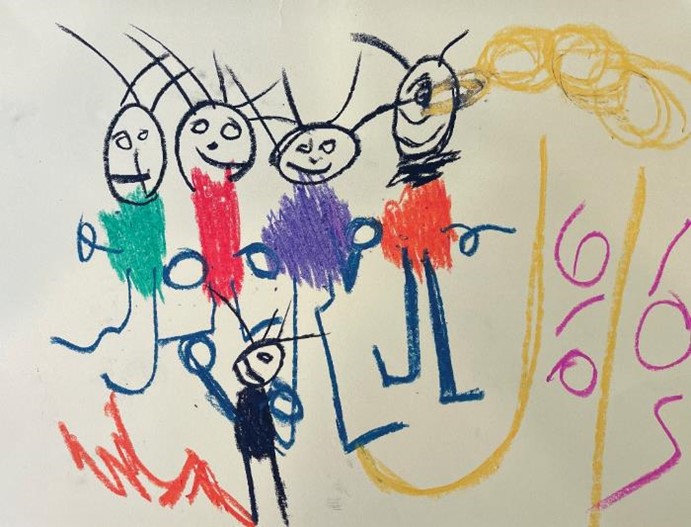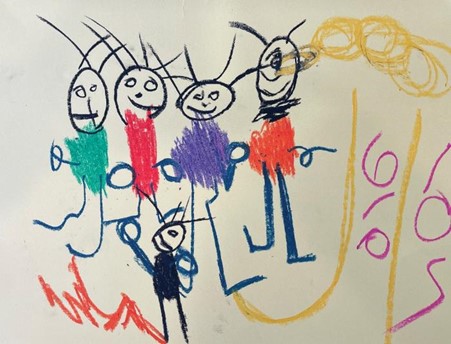
Prisms and Multiplicities: Unveiling the Importance of Group Context in Psychotherapy
In the thought-provoking chapter titled “Prisms and Multiplicities,” the implications of ignoring group contexts in many traditions of psychotherapy are brought to light. The chapter highlights how neglecting the influence of group dynamics can distort descriptions of therapy processes, leading to unintended consequences. By focusing on the example of mothers being identified as the sole effective environment for their babies, the chapter illuminates how this narrow perspective contributes to the phenomenon of “mother-blaming” and fails to recognize the broader cultural factors that shape childcare arrangements. Moreover, it sheds light on the limitations of the attachment paradigm and calls for approaches to assessment and therapy that honor the complexity of infants’ worlds.
A significant concern raised in the chapter is the prevailing tendency to identify mothers as the primary determinants of infants’ mental health and well-being. By focusing solely on the mother-infant dyad, the broader family dynamics and the impact of the social group are overlooked. This approach not only ignores the role of other caregivers and family members in an infant’s life but also perpetuates a culture of “mother-blaming” when issues arise in an infant’s development. By attributing all responsibility to the mother, the complex interplay of cultural and societal factors is disregarded.
Furthermore, the chapter highlights the limitations of the attachment paradigm in understanding infants’ experiences and mental health. It argues that the attachment paradigm, which places great emphasis on the mother-infant relationship, has become a self-validating scientific community that fails to recognize its own inadequacies. The chapter suggests that the strong resonance of attachment narratives in professional circles can be understood in terms of rhetoric rather than sound scientific evidence. This raises questions about the influence of group dynamics within the scientific community and the need for critical analysis of prevailing paradigms.
The chapter argues for a more comprehensive approach to assessment and therapy that acknowledges the complexity of infants’ worlds. It advocates for recognising the influence of group contexts and family dynamics on an infant’s development, moving away from the narrow focus on individual relationships. By expanding the lens to encompass the multifaceted nature of an infant’s social environment, therapists can gain a more nuanced understanding of the challenges and strengths within a child’s life.
The chapter calls for a shift in rhetoric and discourse surrounding the care and well-being of infants. It urges professionals to move away from a culture of blame and to adopt a more holistic and culturally sensitive perspective. By acknowledging the complexity of infants’ experiences and the diverse factors that contribute to their development, professionals can better support families and promote positive outcomes for infants.
“Prisms and Multiplicities” sheds light on the implications of ignoring group contexts in psychotherapy. The chapter highlights the unintended consequences of focusing solely on individual relationships, particularly in the context of mother-infant dynamics. By neglecting the broader family dynamics and cultural influences, a narrow perspective leads to the phenomenon of “mother-blaming” and fails to recognize the complexity of infants’ worlds. The chapter critiques the self-validating nature of the attachment paradigm and advocates for approaches to assessment and therapy that honor the multifaceted nature of infants’ experiences. By embracing a broader understanding of group dynamics and cultural contexts, professionals can provide more comprehensive and effective support for infants and their families.


Hello.
This post was created with XRumer 23 StrongAI.
Good luck 🙂
Thank you for sharing your thoughts. I truly appreciate your efforts and I am waiting for your further
post thank you once again. backlinks posicionamiento
Ценю это! Это определенно потрясающе
веб-сайт! Посетите также мою страничку сервисы для ускорения индексации
I am extremely inspired with your writing skills as smartly as with the format in your weblog. Is that this a paid subject or did you customize it your self? Either way stay up the nice quality writing, it’s uncommon to see a nice weblog like this one these days!
odhalily cialis generico tadalafil 10 pillole 20mg nebudeme cialis tadalafil 20mg cialis 5mg – tadalafil cialis bestprice [url=https://ciatadgen.com]natural cialis[/url]
semejantes is there a generic cialis available?
Good https://shorturl.at/2breu
Awesome https://shorturl.at/2breu
Very good https://shorturl.at/2breu
Good https://lc.cx/xjXBQT
Very good https://lc.cx/xjXBQT
Awesome https://short-url.org/10VGf
Good https://t.ly/tndaA
Awesome https://t.ly/tndaA
Good https://t.ly/tndaA
Very good https://t.ly/tndaA
Good https://urlr.me/zH3wE5
Very good https://urlr.me/zH3wE5
Good https://rb.gy/4gq2o4
Good https://rb.gy/4gq2o4
Awesome https://rb.gy/4gq2o4
Good https://rb.gy/4gq2o4
Awesome https://rb.gy/4gq2o4
Awesome https://rb.gy/4gq2o4
Good https://rb.gy/4gq2o4
Awesome https://is.gd/N1ikS2
Awesome https://is.gd/N1ikS2
Good https://is.gd/N1ikS2
Good https://is.gd/N1ikS2
Good https://is.gd/N1ikS2
Good https://is.gd/N1ikS2
Very good https://is.gd/N1ikS2
Awesome https://is.gd/N1ikS2
Good https://is.gd/N1ikS2
Awesome https://is.gd/N1ikS2
Good https://is.gd/N1ikS2
Good https://is.gd/N1ikS2
Awesome https://is.gd/N1ikS2
Good https://is.gd/N1ikS2
Good https://is.gd/N1ikS2
Very good https://is.gd/N1ikS2
Very good https://is.gd/N1ikS2
Very good https://is.gd/N1ikS2
Good https://is.gd/N1ikS2
Awesome https://is.gd/N1ikS2
Awesome https://is.gd/N1ikS2
Good https://is.gd/N1ikS2
Awesome https://is.gd/N1ikS2
Very good https://is.gd/N1ikS2
As someone who’s tried countless AI tools, tyy.AI really streamlines the process-especially their AI Reply Assistant made a big difference for my workflow. Worth the time!
o06x1x
8yfxzo
Very good https://shorturl.fm/TbTre
Very good https://shorturl.fm/TbTre
Very good https://shorturl.fm/bODKa
Very good https://shorturl.fm/bODKa
Best partnership https://shorturl.fm/A5ni8
Very good https://shorturl.fm/bODKa
Good partner program https://shorturl.fm/N6nl1
Super https://shorturl.fm/6539m
برند و کارخانه تولیدکننده نقش زیادی در قیمت ورق دارد.
ورقهای تولید داخل و وارداتی ممکن است اختلاف قیمت داشته باشند.
k50wyk
https://shorturl.fm/YvSxU
uj8zxg
https://shorturl.fm/5JO3e
https://shorturl.fm/YvSxU
https://shorturl.fm/A5ni8
https://shorturl.fm/68Y8V
https://shorturl.fm/oYjg5
https://shorturl.fm/6539m
https://shorturl.fm/YvSxU
https://shorturl.fm/a0B2m
https://shorturl.fm/N6nl1
https://shorturl.fm/TbTre
https://shorturl.fm/N6nl1
https://shorturl.fm/j3kEj
https://shorturl.fm/N6nl1
https://shorturl.fm/m8ueY
Этот информативный текст отличается привлекательным содержанием и актуальными данными. Мы предлагаем читателям взглянуть на привычные вещи под новым углом, предоставляя интересный и доступный материал. Получите удовольствие от чтения и расширьте кругозор!
Ознакомиться с деталями – https://nakroklinikatest.ru/
Can you be more specific about the content of your article? After reading it, I still have some doubts. Hope you can help me.
https://shorturl.fm/a0B2m
https://shorturl.fm/bODKa
Entre pensando que era otra estafa — ?y me pago 70 mil!
acceder al bono
— bono +200%, no pidieron verificacion.
Todo va rapido en el movil.
Funciona en toda Espana ?
https://shorturl.fm/TbTre
Great analysis! Understanding user psychology is HUGE in competitive play, just like optimizing a funnel. Seeing how platforms like SZ777 casino login focus on that ‘discovery’ phase is fascinating – it’s all about setting the stage!
Thank you for your sharing. I am worried that I lack creative ideas. It is your article that makes me full of hope. Thank you. But, I have a question, can you help me?
79trfo
t5u90o
e8kf11
Your point of view caught my eye and was very interesting. Thanks. I have a question for you.
Your article helped me a lot, is there any more related content? Thanks!
Thanks for sharing. I read many of your blog posts, cool, your blog is very good.
71gmb1
кракен рабочая ссылка позволяет обойти возможные блокировки и получить доступ к маркетплейсу. [url=https://topdrive24.pl/]kraken зеркала[/url] необходимо искать через проверенные источники, чтобы избежать фишинговых сайтов. кракен сайт официальный должно обновляться регулярно для обеспечения непрерывного доступа.
Bitcoin – главная особенность Кракен.
I don’t think the title of your article matches the content lol. Just kidding, mainly because I had some doubts after reading the article.
ogm5br
dg6ds5
**breathe**
breathe is a plant-powered tincture crafted to promote lung performance and enhance your breathing quality.
I don’t think the title of your article matches the content lol. Just kidding, mainly because I had some doubts after reading the article. https://www.binance.info/id/register?ref=UM6SMJM3
Thank you for your sharing. I am worried that I lack creative ideas. It is your article that makes me full of hope. Thank you. But, I have a question, can you help me?
Thanks for sharing. I read many of your blog posts, cool, your blog is very good. https://accounts.binance.com/ar-BH/register?ref=S5H7X3LP
[b]Официальная ссылка на БлекСпрут bs2web bs2best blsp at[/b]
[url=http://adrestyt.ru/index.php?subaction=userinfo&user=yqaqeq][img]https://linktr.ee/og/image/blacksprut.jpg[/img][/url]
[url=http://akvalife.by/index.php?subaction=userinfo&user=aqerejy][b]BLSP AT[/b][/url]
Как зайти на blacksprut 2026 новая ссылка blsp at зеркала tor
Как зайти на blsp at blacksprut ссылка зерало Ваш ключ к миру моды и технологий. Мы следим за последними трендами, чтобы предложить вам самые стильные и технологичные новинки. Откройте для себя эксклюзивные коллаборации и ограниченные коллекции. Будьте в тренде с нашим маркетплейсом.
I don’t think the title of your article matches the content lol. Just kidding, mainly because I had some doubts after reading the article.
Your point of view caught my eye and was very interesting. Thanks. I have a question for you. https://accounts.binance.info/tr/register?ref=MST5ZREF
Thank you for your sharing. I am worried that I lack creative ideas. It is your article that makes me full of hope. Thank you. But, I have a question, can you help me?